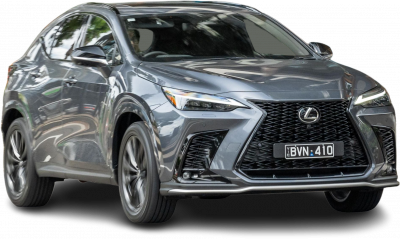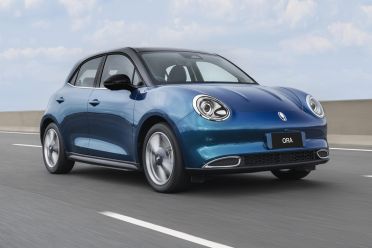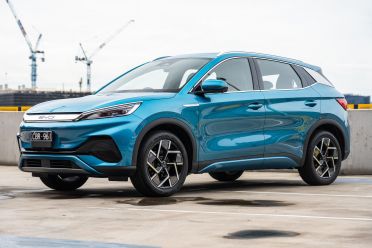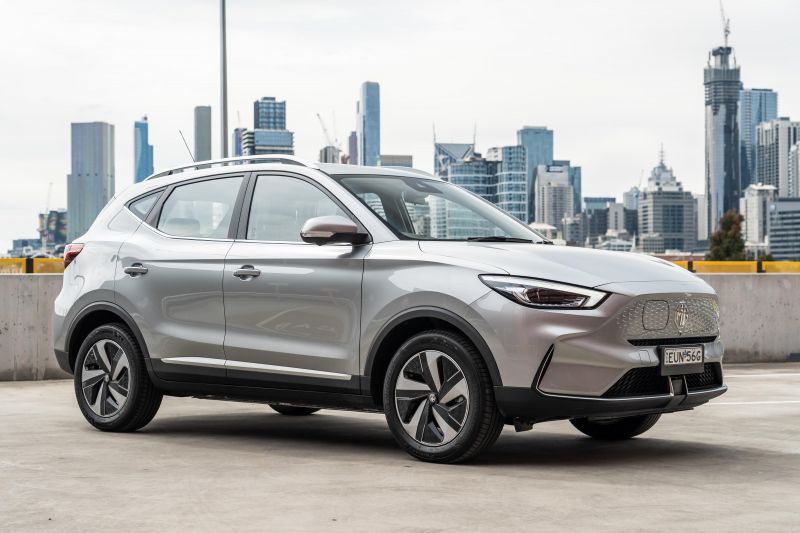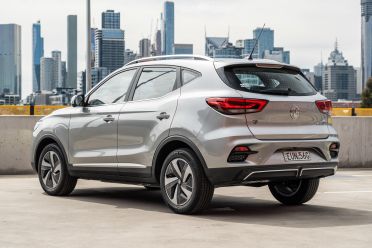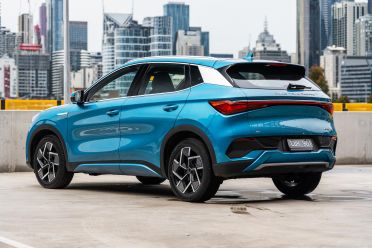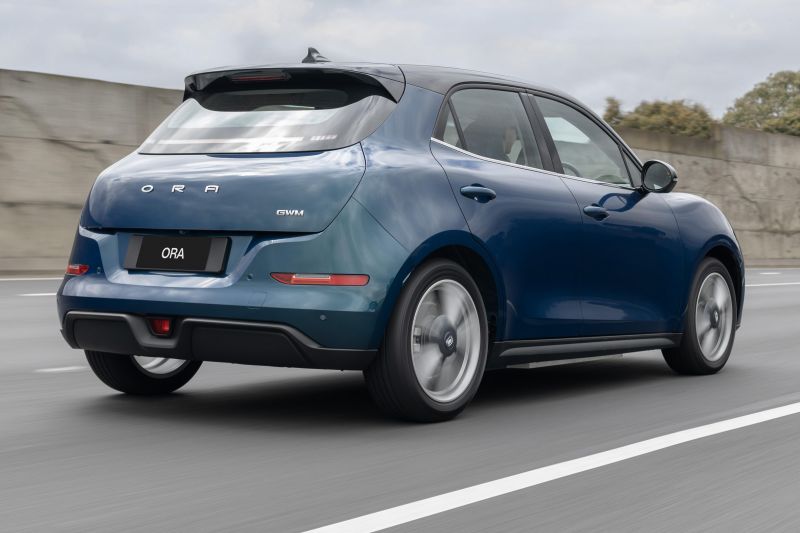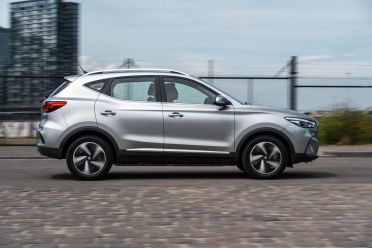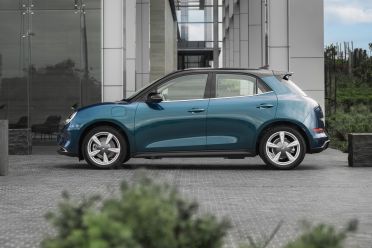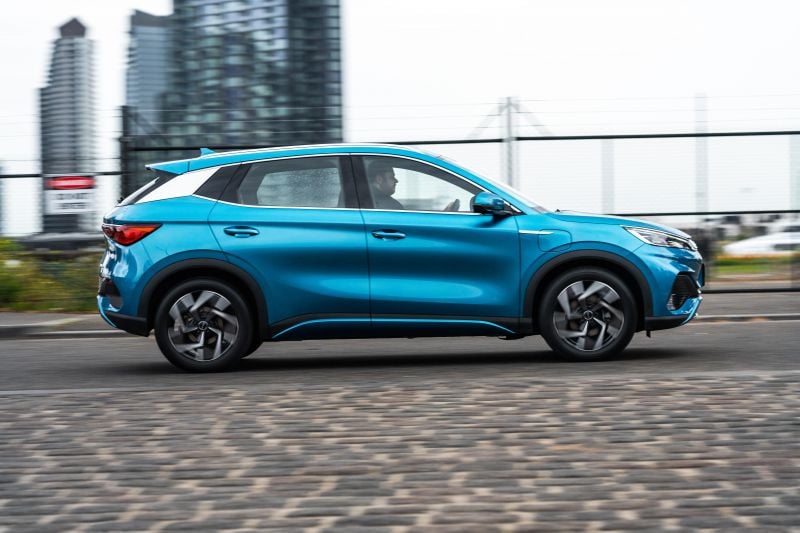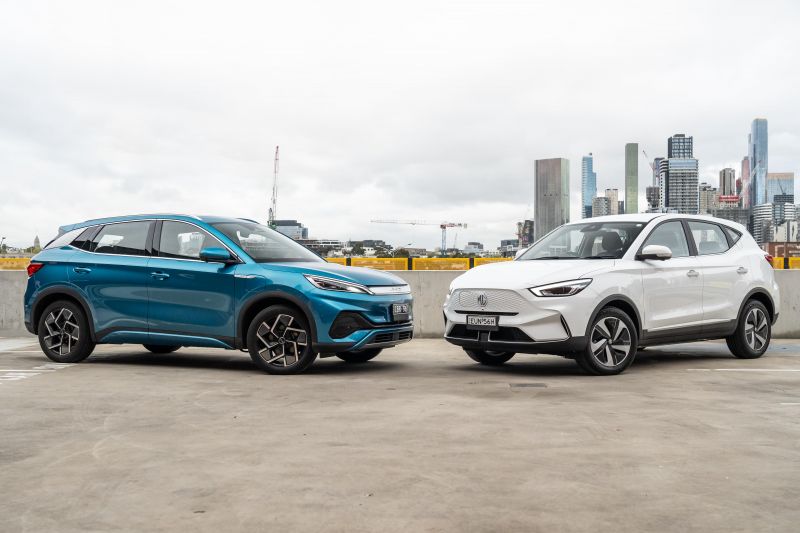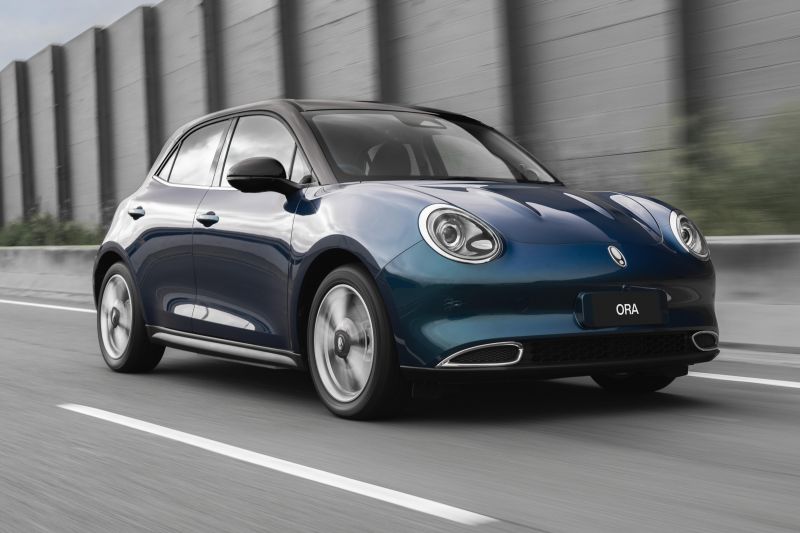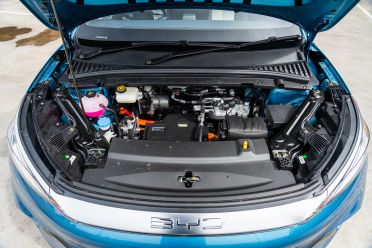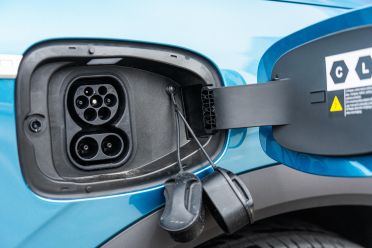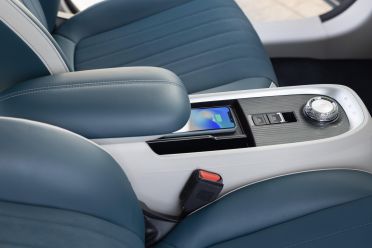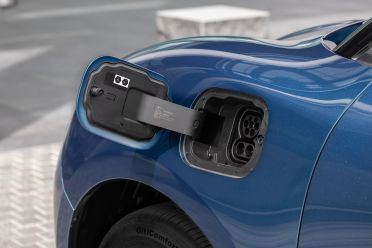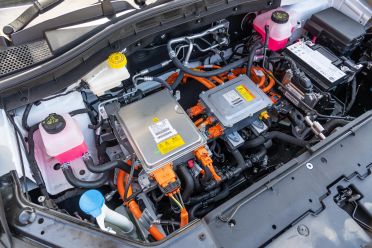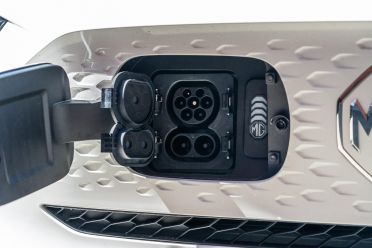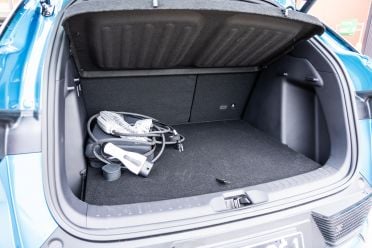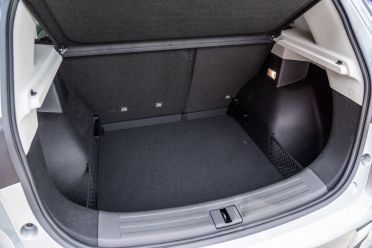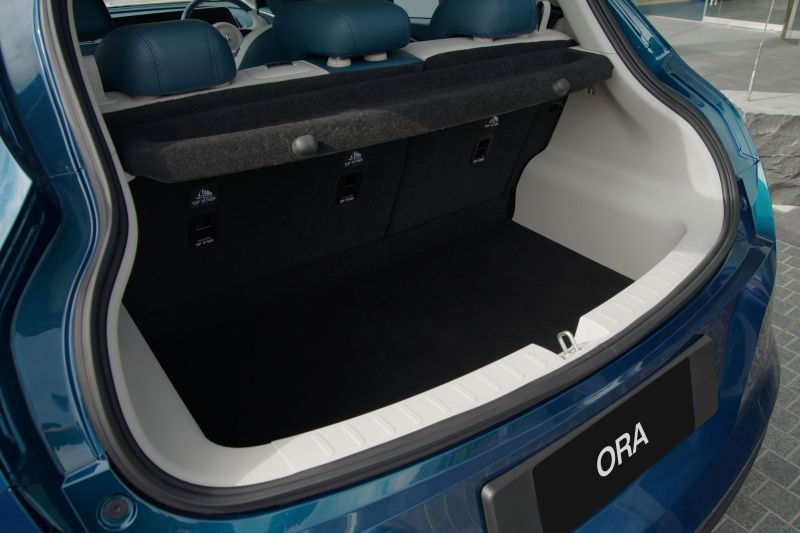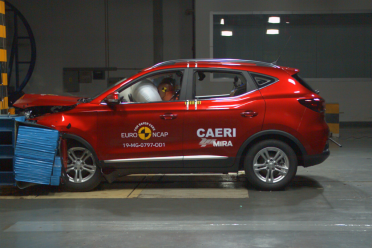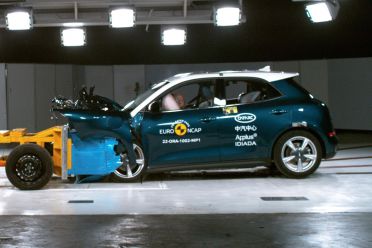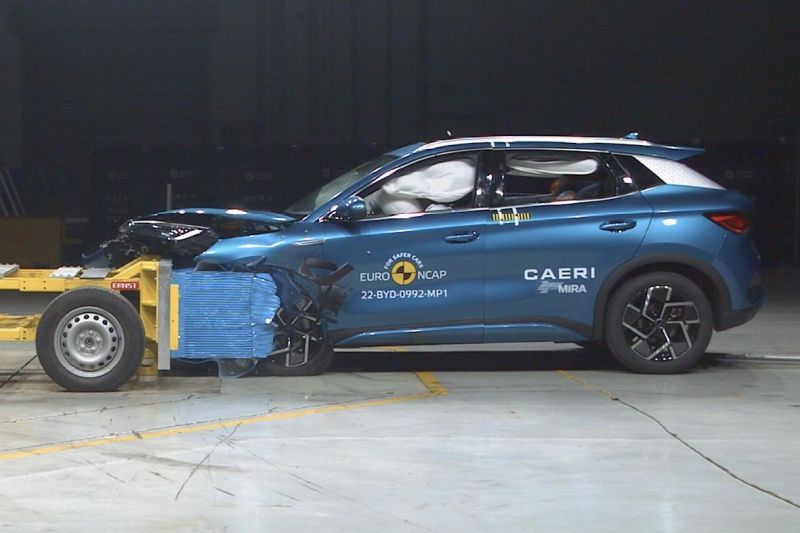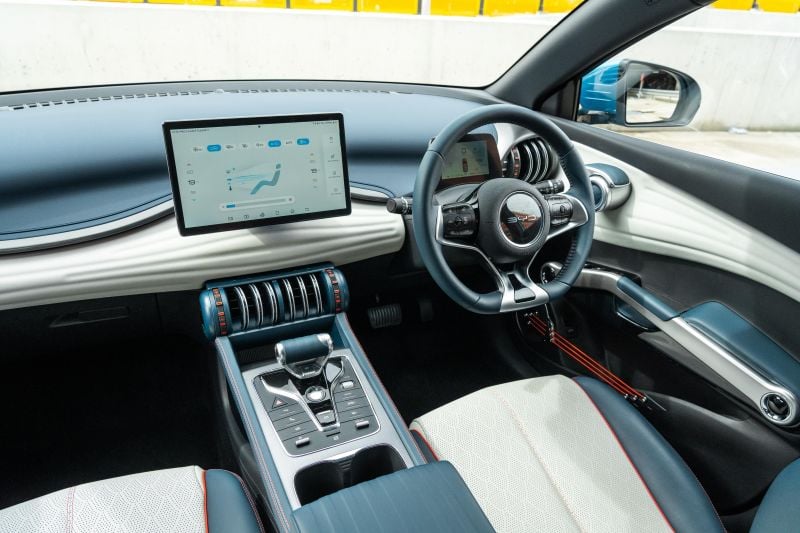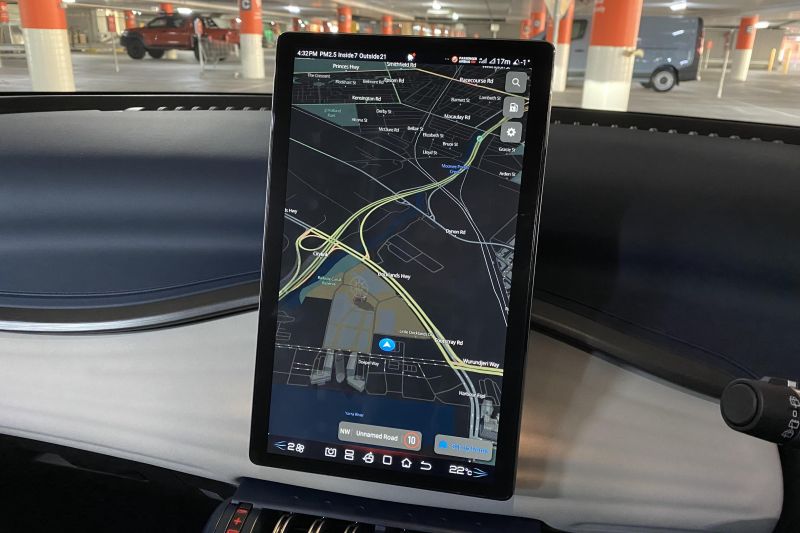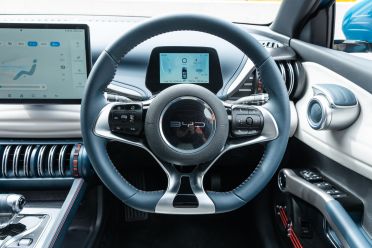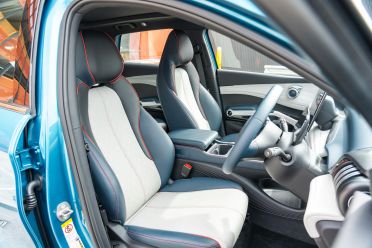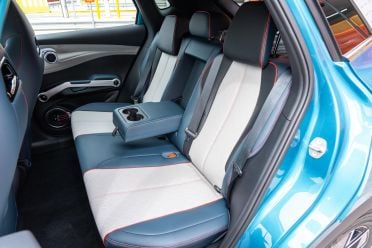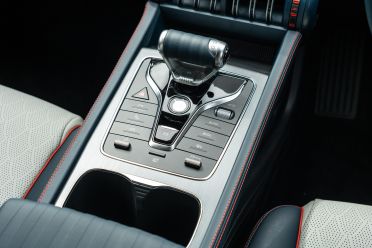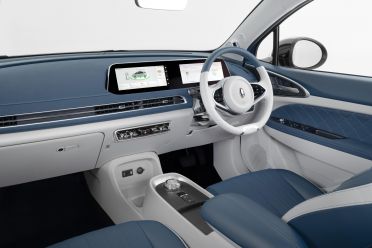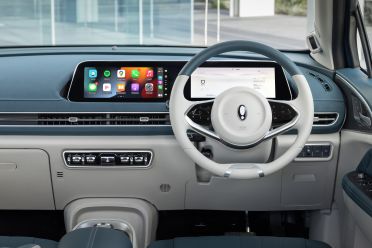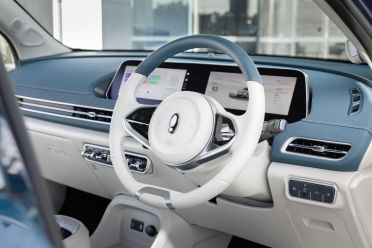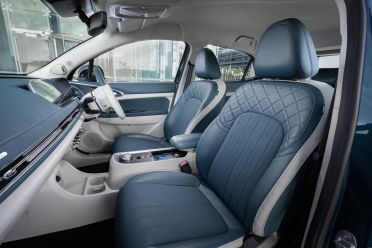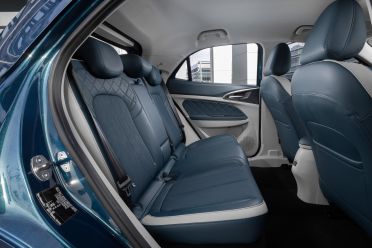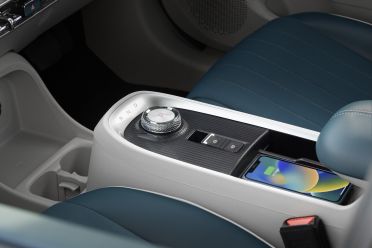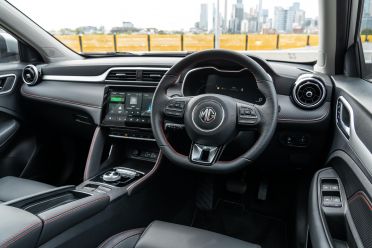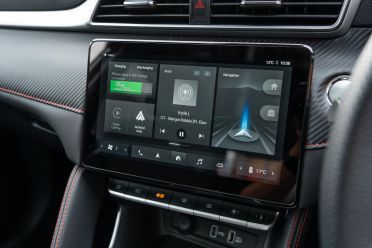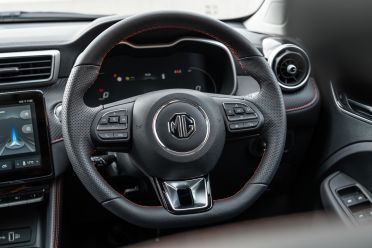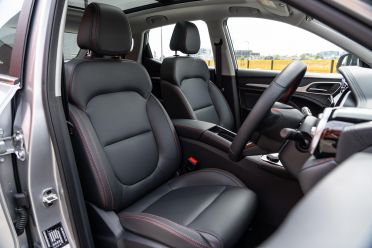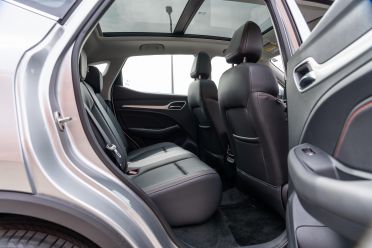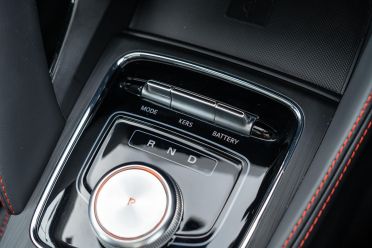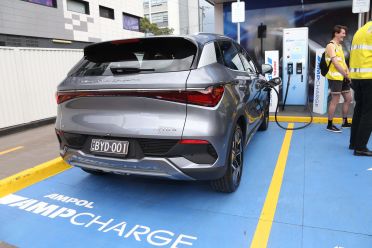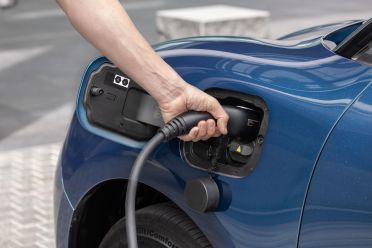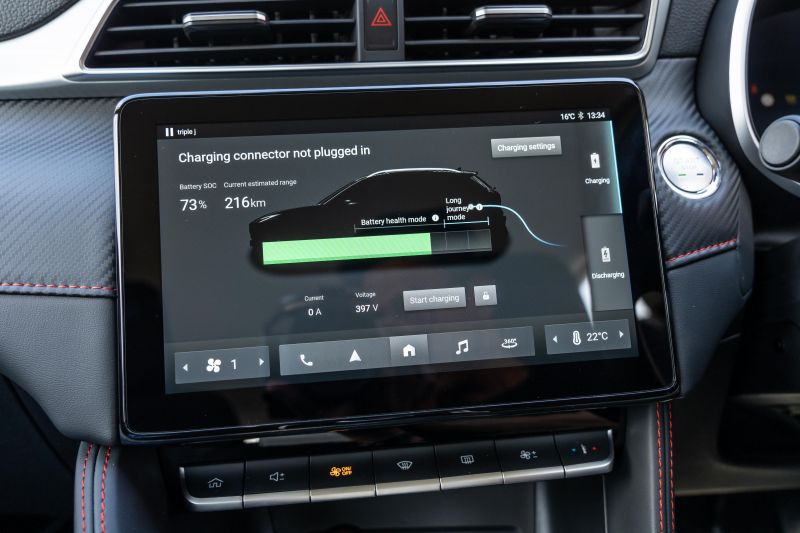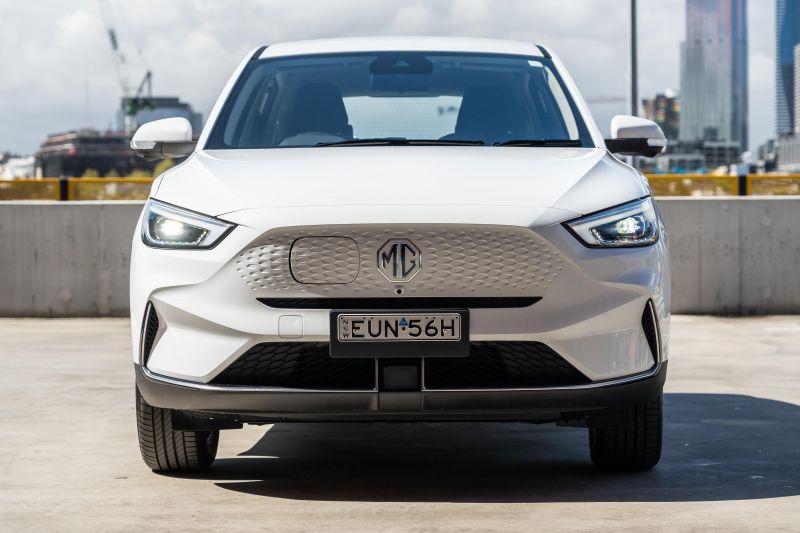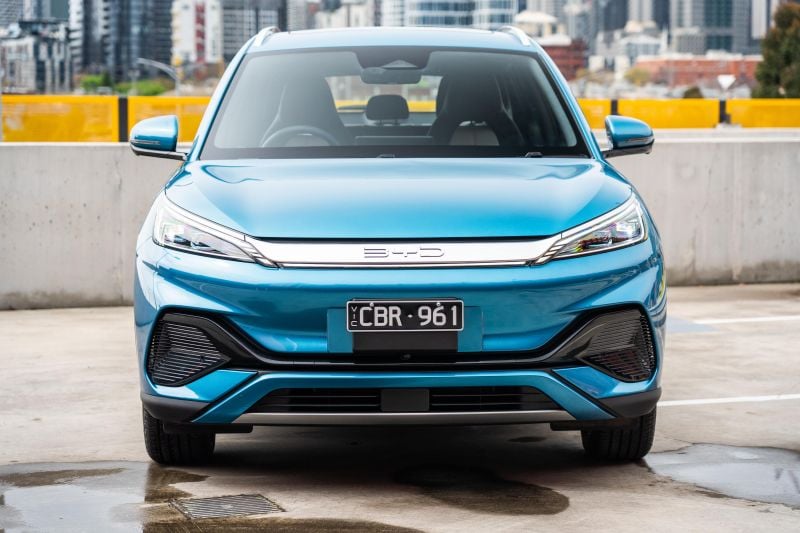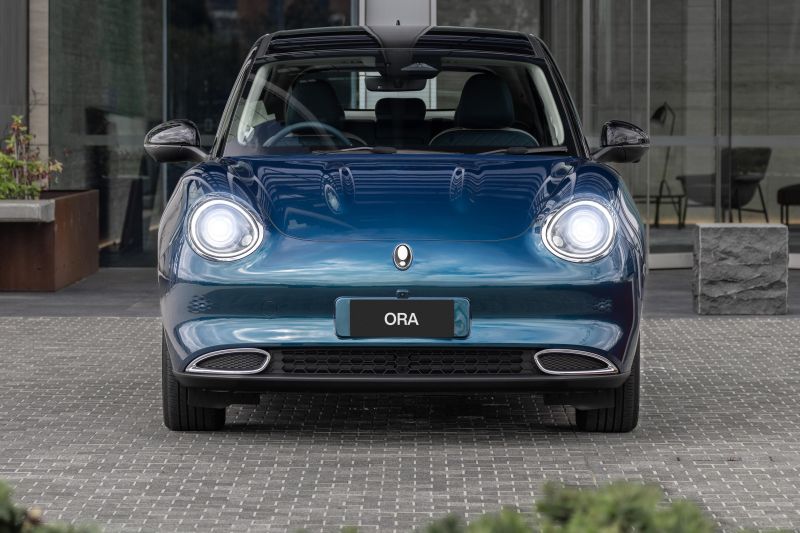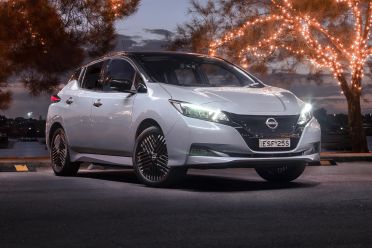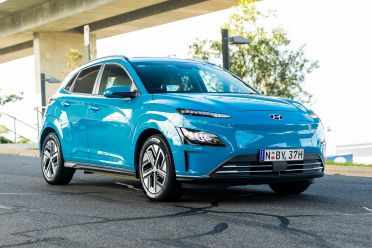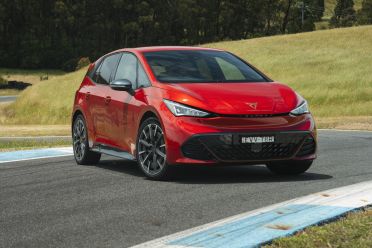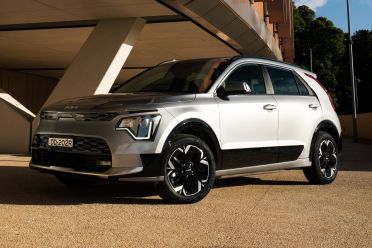The proliferation of electric suburban runabouts from China is revolutionising Australia’s nascent EV market.
While Tesla dominates, not everyone can afford to shell out $65,000 or more. But the trio of models on test sneak in below $50,000 drive-away in most parts of Australia.
Granted, that isn’t cheap. But with the rebates and tax breaks on offer, and the cheaper cost of electricity than petrol, they do stack up as potentially great solutions for some people.
The MG ZS EV recently received a facelift and the company is selling everything it can bring here. In 2021 it was Australia’s number-two EV, but this slipped to fifth in 2022.
BYD is widely seen as China’s answer to Tesla, and its Atto 3 is making waves. It was Australia’s top-selling non-Tesla EV in 2022 despite only being on sale a few months, and a few growing pains for its distributor.
The third car in this spec comparison only hit the market this week. The Ora is made by Great Wall Motor (GWM), which also owns the GWM Ute, GWM Haval, and GWM Tank brands.
If you’re wondering whether these vehicles are safe bets, both MG and GWM are regular top 10 brands in the Australian market, and BYD is the world’s second-biggest maker of EVs.
For some broader context, sales of electric cars across Australia nearly doubled in 2022 to 33,410 vehicles, equal to about 3.0 per cent of the total new vehicle market.
MORE: BYD Atto 3 review
MORE: GWM Ora review
MORE: MG ZS EV review
MORE: BYD Atto 3 v MG ZS EV comparison
MORE: Australia’s top-selling EVs in 2022
Prices
You can drive-away in all three of these, in most parts of Australia, for under $50,000. Each of these entry grades are rated to travel more than 300km on a charge.
The BYD Atto 3 Standard Range costs $48,011 before on-road costs. You can then option the Extended Range for a further $3000, adding about 75km of driving range for $51,011.
The GWM Ora kicks off at $43,990 before on-road costs. The Extended Range costs a further $4000 at $47,990, but in this case it adds 110km more driving range, while the GT feature upgrade adds a further $6000 taking it to $53,990.
The MG ZS Excite variant is $44,990 before on-road costs. There’s just the one battery option for now, but you can get a better-equipped Essence version for another $4000, at $48,990. We’d note MG is about to launch a longer-range model too, with a rough $5000 premium.
Full range list prices
- BYD Atto 3
- Standard Range: $48,011
- Extended Range: $51,011
- GWM Ora
- Base: $43,990
- Extended Range: $47,990
- Extended Range GT: $53,990
- MG ZS EV
- Excite: $44,990
- Essence: $48,990
- Long Range: Price TBC
Advertised drive-away pricing by state
| Model | BYD Atto 3 | GWM Ora | MG ZS EV |
|---|---|---|---|
| Variant | Standard | Standard | Excite |
| NSW | $49,112 | $45,550 | $46,709 |
| VIC | $50,839 | $47,234 | $48,416 |
| QLD | $49,705 | $46,114 | $47,319 |
| WA | $52,030 | $47,891 | $49,130 |
| SA | $50,585 | $46,891 | $47,940 |
| TAS | $48,610 | $45,090 | $46,284 |
| ACT | $48,677 | $45,137 | $46,521 |
| NT | $48,657 | $44,490 | $46,195 |
| Model | BYD Atto 3 | GWM Ora | MG ZS EV |
|---|---|---|---|
| Variant | Extended | Extended | Essence |
| NSW | $52,112 | $49,550 | $49,709 |
| VIC | $53,965 | $51,402 | $51,542 |
| QLD | $52,765 | $50,194 | $50,319 |
| WA | $55,394 | $52,403 | $52,518 |
| SA | $53,705 | $51,051 | $51,060 |
| TAS | $51,610 | $49,090 | $49,284 |
| ACT | $51,677 | $49,137 | $49,521 |
| NT | $53,190 | $48,490 | $49,195 |
Drivetrains
There are some definite similarities here: notably the use of cheaper, more stable but less energy-dense lithium iron phosphate (LFP) material for the cathodes in most cases.
The BYD Atto 3 uses LFP batteries called BYD Blade with either 50kWh or 60kWh capacity. They can be charged at 7kW AC and 70-80kWh DC, and offer a claimed driving range of 345km (standard) and 420km (extended) on the WLTP cycle.
The battery powers a 150kW and 310Nm front-wheel motor sufficient for a 0-100km/h time of 7.3 seconds with either battery, despite the weight differential.
The GWM Ora’s standard range battery is a 48kWh LFP and its extended range 64kWh uses more conventional nickel, manganese and cobalt (NMC) cathode materials. GWM doesn’t publish charging speeds, but Electric Vehicle Database says 11kW AC or 64-67kWh DC.
The battery powers a 126kW and 250Nm front motor with a claimed 0-100km/h time of 8.3 seconds – the Ora is a little smaller and lighter, offsetting its lower power.
The MG ZS EV only has the one battery option, a 50kWh LFP offering 320km range, with charging speeds of 11kW AC and 80kW DC. The front motor makes 130kW and 280Nm, giving the car an 8.2-second 0-100km/h time.
But shortly MG will expand on this with the longer-range model using a 72kWh battery offering a 440km driving range.
| Model | BYD Atto 3 | GWM Ora | MG ZS EV |
|---|---|---|---|
| Battery options | 50 or 60kWh | 48 or 64kWh | 50kWh or 72kWh |
| WLTP range | 345 or 420km | 310 or 420km | 320km or 440km |
| Motor power | 150kW | 126kW | 130kW |
| Motor torque | 310Nm | 250Nm | 280Nm |
| Driven wheels | Front | Front | Front |
| 0-100km/h | 7.3 sec | 8.3 sec* | 8.2 sec |
Dimensions
The BYD is the biggest vehicle here with the most capacious boot and the longest wheelbase, with the GWM and MG very close in dimensions – aside from a sizeable boot difference.
| Model | BYD Atto 3 | GWM Ora | MG ZS EV |
|---|---|---|---|
| Length | 4455mm | 4235mm | 4323mm |
| Width | 1875mm | 1825mm | 1809mm |
| Height | 1615mm | 1603mm | 1625mm |
| Wheelbase | 2720mm | 2650mm | 2585mm |
| Boot space | 440L | 228L | 359L |
Safety
Both the BYD and GWM have five-star ANCAP crash-test scores and long lists of driver-assist aids. As the table below shows, only the MG ZS Essence gets the full suite.
Strangely, the pre-update MG ZS EV had a five-star score which was not carried over. MG is understood to be working with ANCAP on an updated score.
MORE: BYD Atto 3 ANCAP test results
MORE: GWM Ora ANCAP test results
| BYD Atto 3 | GWM Ora | MG ZS EV | |
|---|---|---|---|
| Airbags | 7 | 7 | 6 |
| ANCAP rating | 5 stars | 5 stars | N/A |
| AEB | Standard | Standard | Standard |
| Lane-keep assist | Active | Active | Active |
| Blind-spot monitor | Standard | Standard | Option |
| Rear cross-traffic | Braking | Alert | Option |
| Cruise control | Adaptive | Adaptive | Adaptive |
| Camera view | 360° | 360° | 360° |
Cabins
BYD Atto 3
The BYD clearly has the best touchscreen here. It’s 12.8 inches across and operates in both landscape and portrait forms by spinning electrically on-demand.
While it lacked both satellite-navigation and Apple CarPlay at launch, BYD has since rolled both out in software over-the-air (OTA) updates via in-car SIM. Wireless Android Auto is slated to roll out OTA between April and June.
Other standard fare includes a 360-degree camera, Dirac 8-speaker HD sound system, digital and FM radio, a voice assistant, in-built Spotify, four USB ports, and a forward-view driving recorder or dashcam.
The power-adjustable and heated seats are trimmed in perforated synthetic leather trim coloured blue and cream with red piping. In place of a traditional instrument cluster is a 5.0-inch screen perched atop the column.
The back seats benefit from a flat EV floor and are adult-friendly, the tailgate is powered by the press of a button, and there’s a 440-litre boot.
GWM Ora
A little like the BYD, the GWM Ora’s interior as pictured makes use of blue and cream inside, which love-or-hate is certainly different to the norm.
The touchscreen is 10.25 inches in landscape orientation, with phone mirroring and a 360-degree camera view. It’s mated to another 10.25-inch digital instrument cluster.
The powered, leatherette seats are trimmed with a diamond pattern, while the doors are trimmed in the same faux-leather and suede combination as the fronts. Mini-aping toggle switches below the air vents add a touch of flair.
Rear seat space offers sufficient legroom and enough headroom for lanky teenagers to sit comfortably without scraping their heads on the roof, enabled by the EV platform. Although it’s smaller than a VW Golf on the outside, the Ora feels similarly spacious in the second row.
The boot has suffered, however. It’s a bit of a letterbox, with a significant loading lip and low floor, and just 228L capacity.
MG ZS EV
Things are a bit more subdued in here.
The 10.0-inch touchscreen comes with Apple CarPlay, Android Auto, digital radio and FM, satellite-navigation, and a surround-view camera. The Essence adds a wireless charger and six-speaker audio. Behind the wheel sits a digital instrument cluster.
The steering wheel looks great with red stitching and perforated hand grips, but it doesn’t feel all that premium and lacks telescopic reach adjustment – it only moves up and down.
This base model comes with manually adjustable seats trimmed in funky fabric, offering pretty good thigh and side bolstering for support in corners, whereas the Essence has heated leatherette. It also adds the panoramic sunroof.
Despite the fact this is the sole vehicle here that also comes as an ICE car, my 194cm frame still has plenty of leg and head space behind my preferred driving position.
The boot capacity is 359 litres, about the same as a typical hatchback, but inferior to the BYD.
| BYD Atto 3 | GWM Ora | MG ZS EV | |
|---|---|---|---|
| Touchscreen | 12.8-inch | 10.25-inch | 10.0-inch |
| Orientation | Rotating | Landscape | Landscape |
| Sat-nav | Standard | No | Standard |
| Apple CarPlay | Standard | Standard | Standard |
| Android Auto | Standard* | Standard | Standard |
| Wireless charger | Standard | Standard | Option |
Warranty and charging
BYD Atto 3
- Warranty: Six years or 150,000km
- Roadside assist: 12 months
GWM Ora
- Warranty: Seven years, unlimited mileage
- Roadside assist: Five years
MG ZS
- Warranty: Seven years, unlimited mileage
- Roadside assist: Seven years
Incentives
All three of these cars come in well within the threshold to be eligible for the federal government’s fringe benefits tax cut for affordable EVs. This means business buyers or people using company vehicles should speak to their accountant about big savings.
There are always various rebates and other incentives available in each region of Australia, which explains the discrepancies in drive-away prices.
- New South Wales: $3000 rebate or subsidy, stamp duty waiver.
- Victoria: $3000 rebate or subsidy, offset by 2.6 cents per km road-user charges.
- Queensland: $3000 rebate or subsidy, discounted registration and duty costs.
- Western Australia: $3000 rebate.
- South Australia: $3000 rebate, discounted registration.
- Tasmania: Stamp duty and registration discounts.
- Australian Capital Territory: Stamp duty and registration discounts.
- Northern Territory: Stamp duty and registration discounts.
MORE: What electric car buyer incentives are offered across Australia?
Alternatives
- Nissan Leaf: $50,990 to $61,490
- Hyundai Kona: $54,500 to $64,000
- Mini Cooper SE: $55,650 to $63,825
- Cupra Born: $59,990
- Tesla Model 3: $63,900 to to $89,900
- Kia Niro: $64,450 to $72,100
All prices are before on-road costs
MORE: BYD Atto 3 review
MORE: GWM Ora review
MORE: MG ZS EV review
MORE: BYD Atto 3 v MG ZS EV comparison




